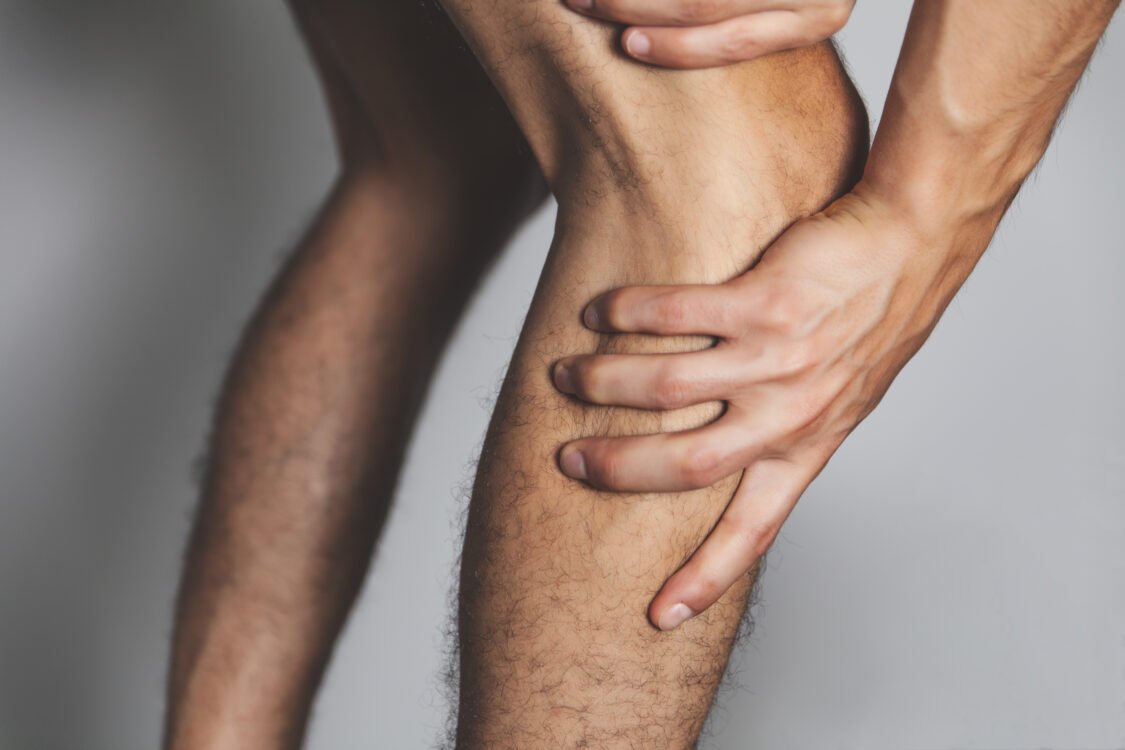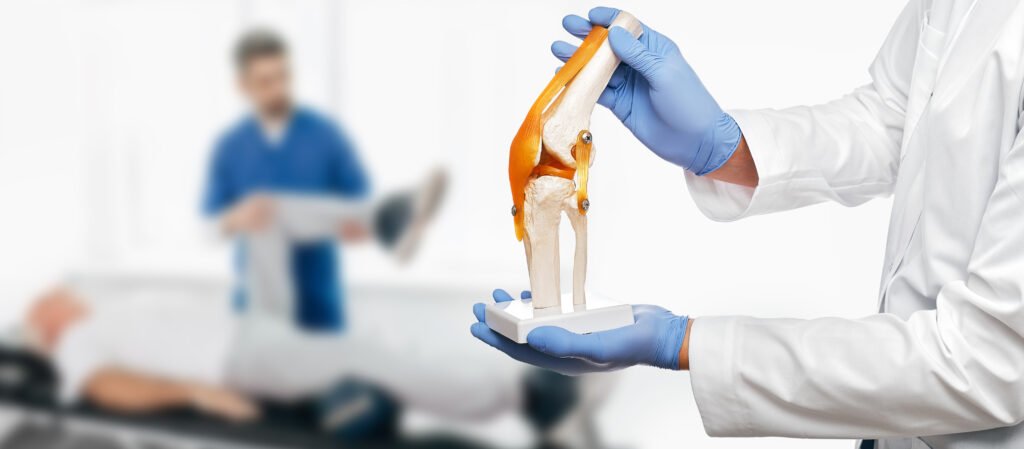
We’ve all experienced it, that sudden pop in your knees when you stand up, or the crack in your knuckles when you stretch your fingers. Most of the time, joint popping (also called crepitus) is harmless and simply caused by the release of gas bubbles inside the joint fluid. But sometimes, these sounds can signal an underlying problem that requires attention.
At Cure Surgicals, as trusted orthopaedic implant distributors and partners in surgical care, we believe in raising awareness about when to relax and when to act, about joint sounds.

Why Do Joints Pop?
- Gas Bubbles: The most common cause. Synovial fluid, which lubricates the joints, can release gas when you move, creating that popping sound.
- Ligament/Tendon Movement: Tendons and ligaments may snap slightly as they shift over bones during movement.
- Arthritis or Cartilage Wear: As cartilage thins, rough surfaces may rub together, creating grinding or popping noises.
When Joint Popping Is Not A Problem
- Happens occasionally without pain or swelling.
- No restriction in movement.
- Common after sitting for long periods or stretching after inactivity.
This type of popping is usually harmless and does not require medical intervention.
When Joint Popping Is A Problem
You should seek medical attention if joint popping is accompanied by:
- Pain: A sharp or persistent ache when the joint pops.
- Swelling: Visible inflammation may indicate injury, arthritis, or an underlying joint disorder.
- Instability: If the joint feels weak, slips, or cannot support your body weight.
- Limited Range of Motion: Difficulty moving the joint freely.
- Grinding or Locking Sensation: Could indicate cartilage damage or meniscus tears.
These symptoms may suggest conditions like osteoarthritis, ligament injuries, cartilage tears, or early degenerative changes.
How Can It Be Managed?
- Lifestyle & Exercise: Low-impact activities like swimming, cycling, and yoga can strengthen muscles without stressing joints.
- Medical Evaluation: An orthopaedic consultation can help identify whether imaging (X-ray/MRI) is needed.
- Surgical Support: In advanced cases, such as severe arthritis or joint injuries, orthopaedic implants and surgical intervention may restore mobility and comfort.
Not all joint pops are dangerous, but listening to your body is key. If you experience pain, swelling, or limited movement, consult an orthopedic specialist promptly. Early diagnosis and treatment not only relieve discomfort but also prevent long-term complications.
At Cure Surgicals, we’re committed to supporting surgeons with advanced orthopedic implants, surgical instruments, and training to ensure patients regain mobility and live pain-free.
Q1. Is joint popping always a sign of a problem?
Not always. In most cases, joint popping (crepitus) is harmless and caused by gas bubbles in the joint fluid or minor tendon/ligament movement. However, if popping is frequent and accompanied by pain, swelling, or stiffness, it may signal an underlying joint condition.
Q2. When should I be concerned about joint popping?
You should seek medical attention if joint popping is accompanied by:
– Persistent pain or discomfort
– Swelling or inflammation
– Instability or weakness in the joint
– Limited range of motion
– Grinding, locking, or catching sensations
These symptoms may indicate arthritis, cartilage damage, ligament injury, or degenerative joint disease.
Q3. Can lifestyle changes reduce joint popping?
Yes. Regular low-impact exercises like swimming, yoga, and cycling can strengthen supporting muscles and reduce unnecessary strain on joints. Maintaining a healthy weight, proper posture, and stretching can also minimize popping and discomfort.
Q4. How do orthopedic specialists diagnose problematic joint popping?
An orthopedic doctor may begin with a physical examination and, if needed, recommend imaging tests such as X-rays or MRI scans to check for cartilage wear, arthritis, or ligament injuries.
Q5. What treatments are available if joint popping is due to a serious condition?
Treatment depends on the underlying cause. Options may include physiotherapy, medication for inflammation, lifestyle modifications, or in advanced cases, orthopedic implants and surgical intervention to restore mobility and comfort.
Q6. How does Cure Surgicals support joint care and treatment?
At Cure Surgicals, we provide advanced orthopedic implants, surgical instruments, and surgeon training. Our goal is to help healthcare professionals offer effective treatments that restore mobility, reduce pain, and improve quality of life for patients.